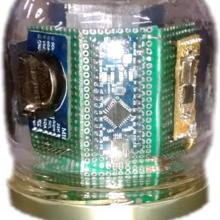
Hosted by OSOS , contributed by Mary65 on 3 July 2018
The initial question is: "How do you imagine the world without scientists?"
The project aims to organize scientific activities in the municipal library on Saturday mornings. Students will be involved in the choice of activities to be proposed and will act as tutors to the people who will come (children aged 3 and above and their parents). The choice of the municipal library as a "location" serves to reduce expenses (the library is normally open on Saturdays) and to bring ideas and activities outside the school, according to the open school optics. The choice of Saturday morning, outside school hours, serves to emphasize that you always learn, even outside the school, even in different times and environments, perhaps in a more pleasant and motivating way. At the same time, it allows people to participate freely, since on Saturdays in our country the schools are closed and generally the parents are free from work. The library also provides many books and scientific publications that can complement and / or deepen what is observed or experienced.
RRI
The location is choosen to involve more people in our activities. In every Saturday we will discussa bou specific ethic problems. Boys and girls will equally partecipate and one of the aims is to fight against gender stereotypes.Materials used and crated will be shared.
For every Saturday meeting we will invite people involved in particular scientific careers or in alternative to organize meetings through skype or other platforms (given the distance of my country from large urban centers).
For resources:
http://www.formascienza.org/default.asp
http://www.stemalliance.eu/pgbs
http://storage.eun.org/resources/upload/596/20180509_164605853_596_THINKING%20SCIENCE.pdf
http://storage.eun.org/resources/upload/682/20180220_131236861_682_Poster-school-Hypatia.pdf
להרגיש
What about a world without Scientists?
Do you know statistics about Science degrees in Europe?
Why are not enough girls involved in Science careers?
http://www.eun.org/focus-areas/stem
https://www.theguardian.com/science/head-quarters/2018/mar/08/bridging-the-gender-gap-why-do-so-few-girls-study-stem-subjects
What can we do?
לדמיין
Activities
Simple experiments with raw materials, observation with a microscope, augmented reality.
יצירה
Each month, based on the activities carried out in the classroom, on the interest shown by the students, etc. the activities to be proposed are chosen. During the activities the students explain what should be done and why and discuss with the "spectators". The ultimate aim is to disseminate "science" to involve the largest number of people in scientific activities and to bring children and especially girls closer to science. The involvement of adults responds to the ophthalm of the open school and also serves to introduce the aspects of RRI.
Activity 1: How a scientist works: mistery boxes. Science and ethics
Activity 2: We observe with the microscope. Microscopic life, bacteria, viruses and vaccines.
Activity 3: We experience augmented reality. The frontiers of science.
Activity 4: Chemistry in the kitchen. Science and gender stereotypes.
Activity 5: DNA extraction. Genetic engineering.
Activity 6: Osmosis (under the microscope and not). Why do some drinks do not quench their thirst?
Activity 7: Measurement of the ph. Pollution and acid rain.
Every Saturday are then suggested texts, articles, links to deepen.